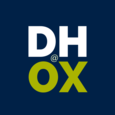Cultures of Knowledge: Networking the Republic of Letters, 1550–1750
Principal Investigator / Director: Howard Hotson
Oxford participants: Arno Bosse); David De Roure; Kathryn Eccles; Howard Hotson; Neil Jefferies; Ruth Kirkham; Rhodri Lewis; Noel Malcolm; Richard Ovenden; John Pybus; Pip Willcox
Other Participants: not specified
Project Webpage: http://www.culturesofknowledge.org
Start Date: 01/01/2009
End Date: Ongoing
Funder: Andrew W. Mellon Foundation
Partner organizations (inside or outside Oxford):
Oxford: Bodleian Digital Library Systems and Services (BDLSS); Oxford e-Research Centre (OeRC). Aalto: Semantic Computing Research Group (SeCo), Aalto and Helsinki. The Hague: Circulation of Knowledge and Learned Practices in the Seventeenth-Century Dutch Republic (CKCC), Huygens Institute, Royal Library. Palo Alto: Humanities+Design, Stanford University. Prague: Institute of Philosophy, Academy of Sciences of the Czech Republic. We also work with many more editorial projects, repositories, and research groups in the UK and internationally.

Project Description:
Cultures of Knowledge is an interdisciplinary group based in Oxford, funded by the Andrew W Mellon Foundation, working with partners in Britain and internationally to reconstruct the correspondence networks central to the revolutionary intellectual developments of the seventeenth century. Early modern scholars possessed for the first time the means of readily dispersing their correspondence across the European continent, and this capacity helped knit intellectual communities together in new ways. Twenty-first century scholars possess for the first time digital means of reassembling those deliberately dispersed manuscript corpora, and these also allow us to work together in new ways. Cultures of Knowledge’s mission is therefore threefold: to develop the shared digital infrastructure necessary to make this possible, to collaborate with scholars, projects, and repositories around the world to populate that infrastructure with data, and to foster and support the kind of collaboration which can further develop both the infrastructure and the population of it. Early Modern Letters Online is the digital platform and union catalogue created by Cultures of Knowledge in Phase I (2009-2012) and further enhanced in Phases II and III (2013-2015; 2015-2017). It is a collaboratively populated resource now moving towards collaborative design and development. It has been designed as an open platform within which scholars, research projects, archives, and libraries can collate, store, publish, analyse, and visualize their epistolary data. It is intended, therefore, to grow at the hands of a geographically dispersed community of contributors. Placing metadata in EMLO is intended to offer a variety of contributors a range of advantages. The most basic of these is the opportunity to archive their material on a ready made, easily accessible, permanent, and prominent site, designed to high scholarly standards, which they need not design, fund, build, or maintain. All metadata is accredited in full, and contributors retain editorial control over their material. As well as enhancing the discoverability of data both on the site and linked to from it, contribution facilitates the study of the ways in which individual correspondences evolve over time and interact with others. This study will be enhanced over the coming years with on-board analytical and visualization tools incorporated into EMLO in subsequent stages of development. Cultures of Knowledge is also a central voice in the wider discussions of the four-year networking project, COST Action IS1310: ‘Reassembling the Republic of Letters, 1500-1800: A digital framework for multi-lateral collaboration on Europe’s intellectual history’.



